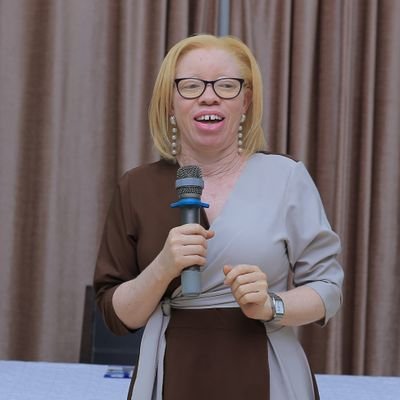People living with albinism have rejected the government’s proposal to merge the Uganda Human Rights Commission (UNHCR) with the Equal Opportunities Commission (EOC), citing that such a merger will increase marginalization, which they already face in communities.
The stand was made by Olive Namutebi, the Executive Director of Albinism Umbrella, while appearing before the Legal and Parliamentary Affairs Committee to present the group’s views on the Constitutional Amendment Bill, 2024, that is seeking to merge the two commissions into one body.
“I have had engagements with them at UNHCR; they seem to be at a higher level, and the issues that are a priority to them are national-wide. So, marginalization in this matter would seem trivial, like a child of albinism being excluded from school; to them the numbers don’t add up, yet to EOC, they would be like that is a school that is discriminating, and it could be one candidate today, but it speaks volumes. We must heed to the basic structures of the Constitution, and any alteration or amendment that alters the basic is void and should be avoided,” she said.
Namutebi asked Parliament to maintain the status quo, arguing that the EOC has demonstrated its commitment to the marginalized communities, citing a case where a private school outright discriminated against a learner with albinism.
“The Albinism Umbrella Civil Society Organization filed a case with the EOC Tribunal that saw justice served and the teachers in the school underwent training to know that learners will come different, but as long as they are human beings and have paid school fees, treat them equally,” she noted.
She further explained that Uganda’s history is characterized by tribal, religious, and political conflict, which has led to the exclusion and discrimination of one group against the other.
“The magic question is, Is the disruption, historical imbalances, and justification that led to the creation of the Equal Opportunities Commission cured or not? The fact on the ground indicates that inequality in terms of gender, regional, political, social, and economic inequalities still exists,” Namutebi said.
Read Also: Ministerial Steering Committee Meets to Handle Merging of Essential Government Agencies
She added that the cost of excluding the marginalized people by minimizing or diminishing the mandate of EOC is regressive and that it behooves one to know the imbalances and prejudices experienced by marginalized communities who may never see the sight of lawyers or court.
The Albinism Umbrella called on Parliament to make wider consultations across the whole country if the government insists on merging UHRC and EOC and also ensure that, in case the new commission is established, its mandate has to be widened to ensure equal opportunities are also implemented in the private sector.















